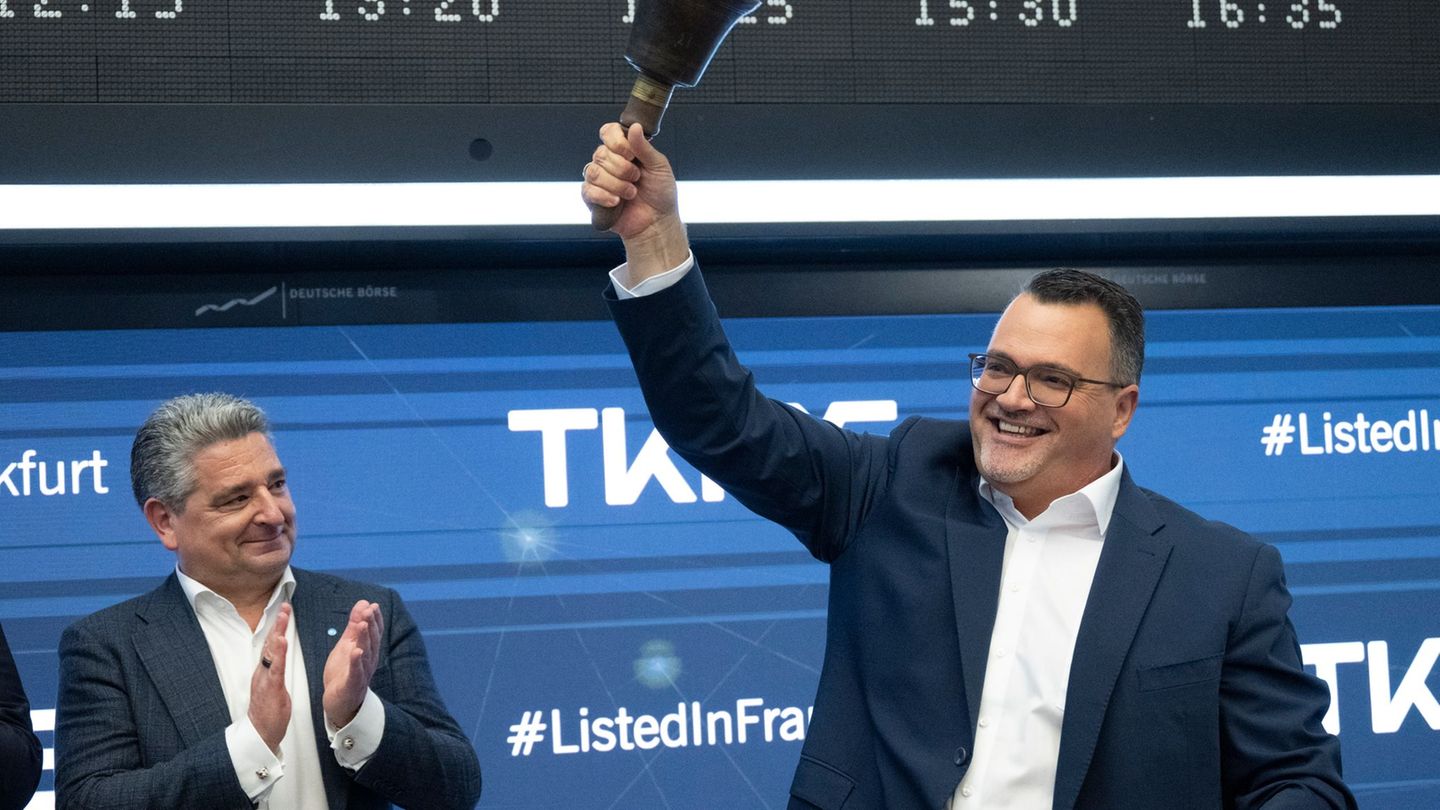The Summit of the countries of the Seven Group (G7) In Canada, celebrating its 50th anniversary, and Donald Trump’s first since he returned to the US presidency. But this time you will find, not only with the war escalation between Israel and Iran in the menu but with a different agenda compared to previous years, where the host country is leaving aside the climate action and gender equality, Themes that were previously central to the summit.
For the experts of the Atlantic Council it is a high -risk summit among high -level summits. This time the leaders of G7 (USA, Germany, France, Italy, Canada, Japan and the United Kingdom, more than half of the world GDP) will meet at the resort of the rock mountains of Kananaskis, Albert oil and the financial consequences of the decision of the then US president Richard Nixon to eliminate the dollar from the gold standard.
In recent years, the G7 has joined around the coordination of sanctions to Russia, support for the reconstruction of Ukraine and the response to the excess of Chinese manufacturing capacity, but 2025 comes with new challenges, including a current commercial war between group members, that will test the determination and the raison d’être of the group, according to these experts.
In this context, the G7 that was formed fifty years ago so that the democracies of the world’s advanced economies could align in the face of shared economic and geopolitical challenges, now it must be rethink what happens when the cause of instability comes from the interior of the group. That is the question that leaders gathered in Kananaskis. Therefore, analyst Josh Lipsky, points out that Trump is still knowing some of his new colleagues, including German chancellor Friedrich Merz; the British prime minister, Keir Starmer; the Japanese prime minister, Shigeru ishiba; and the host of the summit, the Canadian prime minister, Mark Carney.
According to Lipsky, Trump will try to coordinate the group against China’s economic coercion, however, the rest of the leaders could affirm that this type of coordination, which is the basis of the operation of the G7, It would be easier if he did not impose tariffs on his allies.
The issues that will be discussed at the summit of the 7
For Emel Akan, correspondent in the White House of The Epoch Times, the meeting will prioritize issues such as Energy security, artificial intelligence (AI), critical mineral supply chains and global economic stability, which reflects a change in the priorities promoted by Trump’s return and a renewed approach to the original G7 mission. Commercial tensions, intensified by recent US tariffs, along with geopolitical crises such as escalation between Israel and Iran, the war between Russia and Ukraine and the Gaza conflict, will also be key topics in the discussions of the leaders.
USA-CHINA.JPG
The imposition of US tariffs to its allies will be one of the topics to be discussed
Depositphotos
Akan points out that many believe that Mark Carney, as a host, is adopting a pragmatic approach to ensure that the meeting addresses the most urgent challenges that resonate in all member countries, since, according to Paul Samson of the Cigi, a Canadian tank tank, if issues such as climate change or gender are raised, it is unlikely that the leaders go beyond the agreements existing or assume new commitments. Many organizations and even some countries expect new commitments on gender and climate, “but that will not happen at this table, they could not even include it in the statement with President Trump there,” he said.
According to Akan, a White House official told him that they applauded that the basic approach that the Canadians had adopted in the G7, focusing on fundamental economic issues and In viable matters where G7 can have a significant and measurable impact.
Summit agenda
Canada’s priorities for this year’s summit focus on three main areas:
- The first is to protect communities and the world addressing issues such as foreign interference and transnational crime, according to the agenda, and improving joint responses to forest fires.
- The second priority is to improve energy security and accelerate the use of AI and quantum technologies. This implies strengthening critical mineral supply chains.
- Finally, Canada aims to discuss future associations by increasing private investment in infrastructure, creating well -paid jobs and opening dynamic markets. “The G7 Leaders Summit in Kananaskis is a time for Canada to collaborate with reliable partners to face the challenges with unity, determination and strength,” said Carney. “Canada is ready to lead.”
According to Samon, leaders will focus on areas where it is possible to find points in common, in particular around energy supply chains and how to boost the AI and data revolution. Conversations could include joint projects, shared data centers and ways to strengthen supply chains, possibly through partners such as India.
On the other hand, Caitlin Welsh, of the CSIS and former Trump official, remembers that the first administration of the Republican leader believed that the G7 had diverted from its original mission by focusing too much on controversial issues. In a recent CSIS press conference, he said that this year’s agenda seems to be aligned with the original G7 mission to promote world economic stability and growth: “You can notice the absence of terms such as climate change, gender and other topics on the agenda of this leaders’ summit. This priority list tells me that Canada knows its audience. ”
The last time Canada was the center of the G7 Summit: what the story says
It should be remembered that the last time Canada housed the G7 summit was in 2018, during Trump’s first mandate, the relations between the then Prime Minister Justin Trudeau and the American were remarkably tense. Ankan points out that the summit in Charlevoix, Quebec, concluded with an increase in commercial tensions, Trump retired early and refused to support the joint statement. Was The first time in the history of the G7 that the final declaration did not have the unanimous support of all the leaders.
In this regard, many remember a widely widespread photograph of the 2018 summit that captured the tension of the moment with the then German chancellor, Angela Merkel, inclined on a table, talking to Trump, who was sitting with his arms crossed and looking at her. “For most European leaders, political incentives really do not exist to create a kind of confrontation with Trump,” said Max Bergmann of the CSIS. As seen in recent months, most leaders are expected to adopt a cordial approach similar to their individual meetings with Trump in the White House, he said.
In relation to Asia, the leaders are expected to express their concern about the increase in tensions in the seas of Eastern and Southern China, as well as for the continuous military development of China. As in previous years, they will probably emphasize what G7 has pointed out as the need for “peace and stability in the Taiwan Strait.” According to Samon, China will be a recurring theme in the discussions of the summit, although it is not mentioned in the final statement. He pointed out that key issues of the agenda, such as transnational crime, critical minerals and advanced technologies, are designed to counteract the recent global influence of the Chinese regime.
Anyway, Carney’s interactions with Trump will attract a lot of attention, especially amid commercial tensions. The United States recently doubled steel and aluminum tariffs, alleging the avalanche of low -cost Chinese metals in global markets. Trump has also pressed to Canada and Mexico on Fentanilo traffic and has suggested that Canada should become the 51st United States state to obtain free “golden dome” protection, a proposed multiple defense defense system.
Unlike the reprisal measures of previous years, Carney has adopted a measured approach, exempting certain compensatory tariff products to protect Canadian companies and consumers from the increase in costs. It also has direct conversations with Trump to finalize a commercial agreement, according to Canadian media. While no agreement has been completed, one remains to be seen if one will be reached before Carney and Trump personally meet outside the summit.
Source: Ambito




